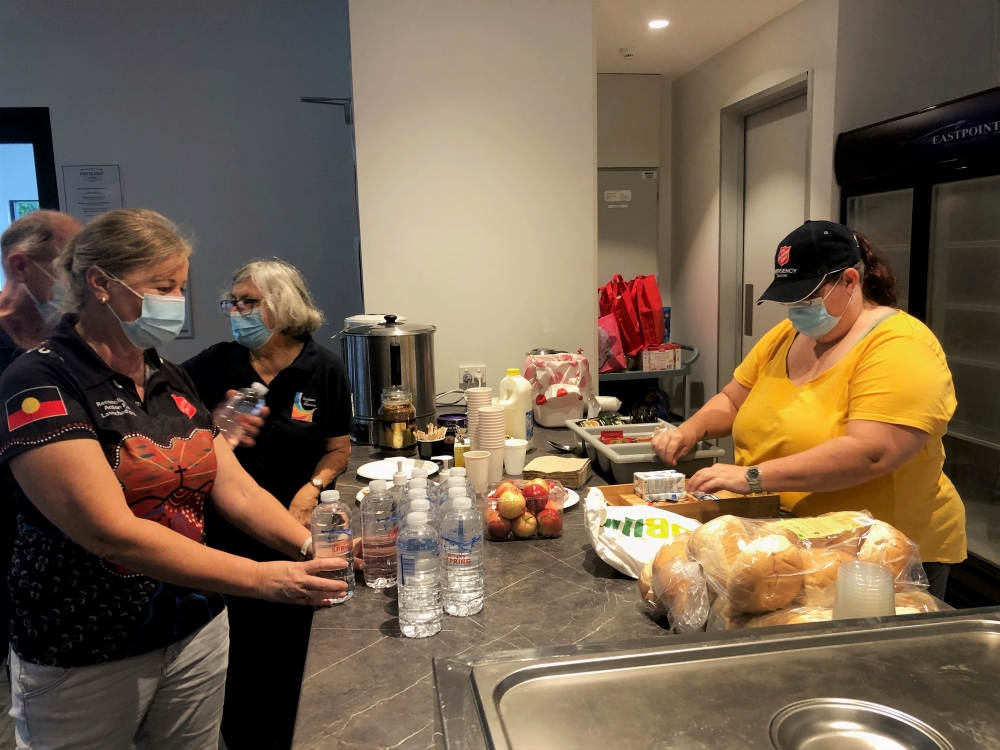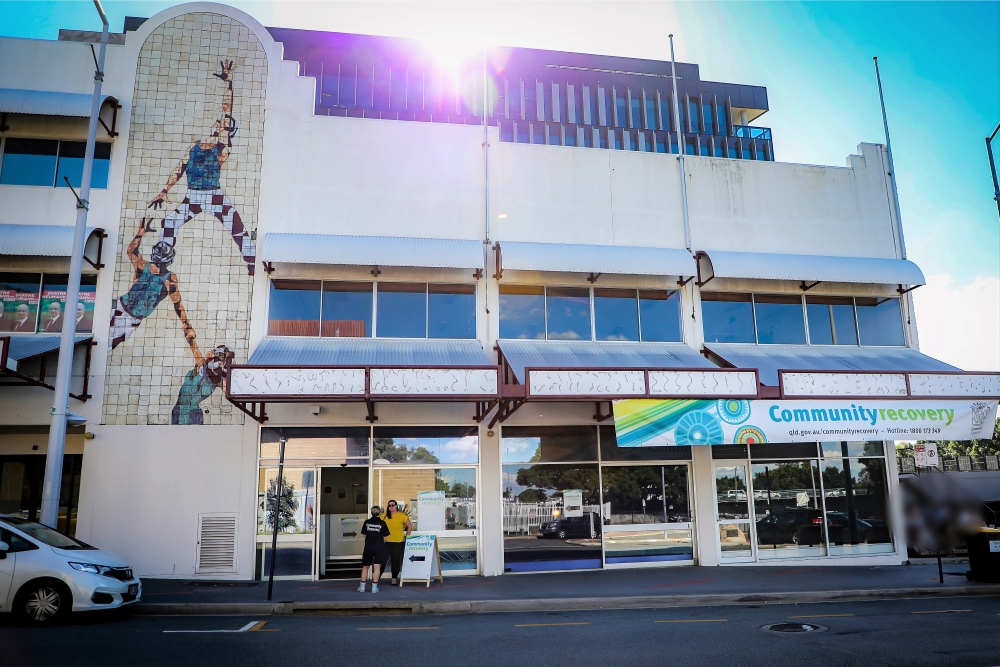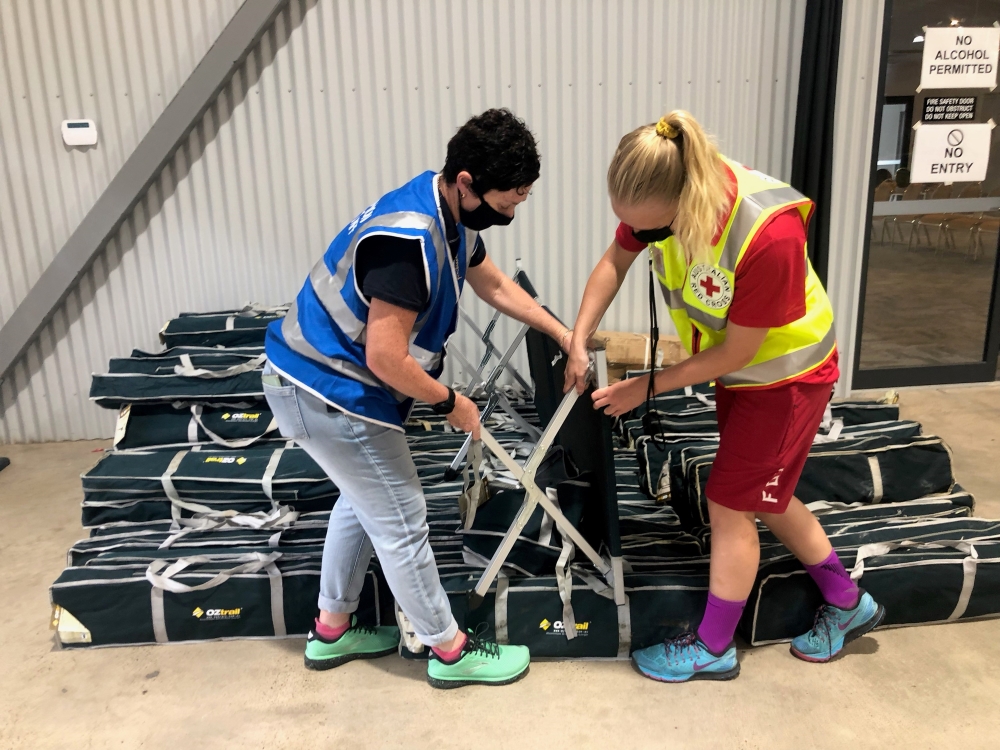All attendees of the Ipswich Evacuation Centre have been able to return home or been offered temporary accommodation as council moves from disaster response to the next phase of Ipswich’s flood recovery.
More than 400 people had attended the Ipswich Evacuation Centre since it opened on Friday 25 February, providing shelter to residents from Ipswich, Somerset, Lockyer Valley and Brisbane.
Local Disaster Management Group Chair Mayor Teresa Harding said council and local community services had done an amazing job working together to ensure no one was left without a safe place to go.
“I am extremely proud that we have kept our community safe throughout this significant flood event, with no significant injuries or fatalities reported in Ipswich,” Mayor Harding said.
“As the disaster was unfolding, the Evacuation Centre played a critical role in providing a safe, secure and comfortable place for residents to take shelter until the waters had receded.
“As we transition from disaster response into the next phase of our recovery, it’s fantastic to see many families able to return to home, and where that was not possible, all remaining attendees offered local accommodation.”

Salvation Army members preparing food for evacuation centre.
The Ipswich Evacuation Centre brought social service providers, such as The Salvation Army, Red Cross, Lifeline, Department of Housing, West Moreton Health, Orange Sky and Save the Children, under the one roof to provide access to critical support services.
“Council, relevant State departments and our local service providers have worked around the clock for the past 13 days to offer an exceptional standard of care,” Mayor Harding said.
“Our local Salvation Army officers provided around 3,000 meals, Orange Sky offered onsite laundry facilities, and representatives from Lifeline and Red Cross offered both practical and emotional support.
“Council worked tirelessly alongside the Department of Housing to find temporary accommodation for those in need, and will continue to assist these residents in securing permanent housing.
“It has been a massive collaborative effort, and I offer a huge thank you to the officers, volunteers and service providers who supported our hardest hit residents at the Ipswich Evacuation Centre.”

Ipswich community recovery hub in Bell Street.
Moving forward, two local Community Recovery hubs will offer impacted residents face-to-face assistance and ongoing support. These are located at:
- Frank McGreevy Function Centre, 112 Brisbane Terrace, Goodna.
- Ipswich Trades Hall, 4 Bell Street, Ipswich.
Community Recovery hubs are open from 9am to 5pm seven days a week, and will remain open for as long as required.
Further details can also be found on the Ipswich Flood Recovery information webpage at Ipswich.qld.gov.au/floodrecovery
Read also:
For information on Personal Hardship Assistance and Essential Services Hardship Assistance, contact the Community Recovery Hotline 1800 173 349 or visit www.qld.gov.au/community/disasters-emergencies
Other grants such the Essential Household Contents Grant, Structural Assistance Grant and Essential Services Safety and Reconnection Grant, which are income tested, are also available to eligible residents who are uninsured and have experienced certain loss or damage following this disaster.
Community Recovery online portal at www.communityrecovery.qld.gov.au
Part of a sports club or organisation? The Sport and Recreation Disaster Recovery Program supports not-for-profit sport and recreation organisations with funding to re-establish facilities and activities after extreme natural events.
Funding of up to $20,000 may be available for eligible sport and active recreation organisations located in areas declared under the Disaster Recovery Funding Arrangements (DRFA).
For more information, visit www.qld.gov.au/recreation/sports/funding/disaster-recovery


